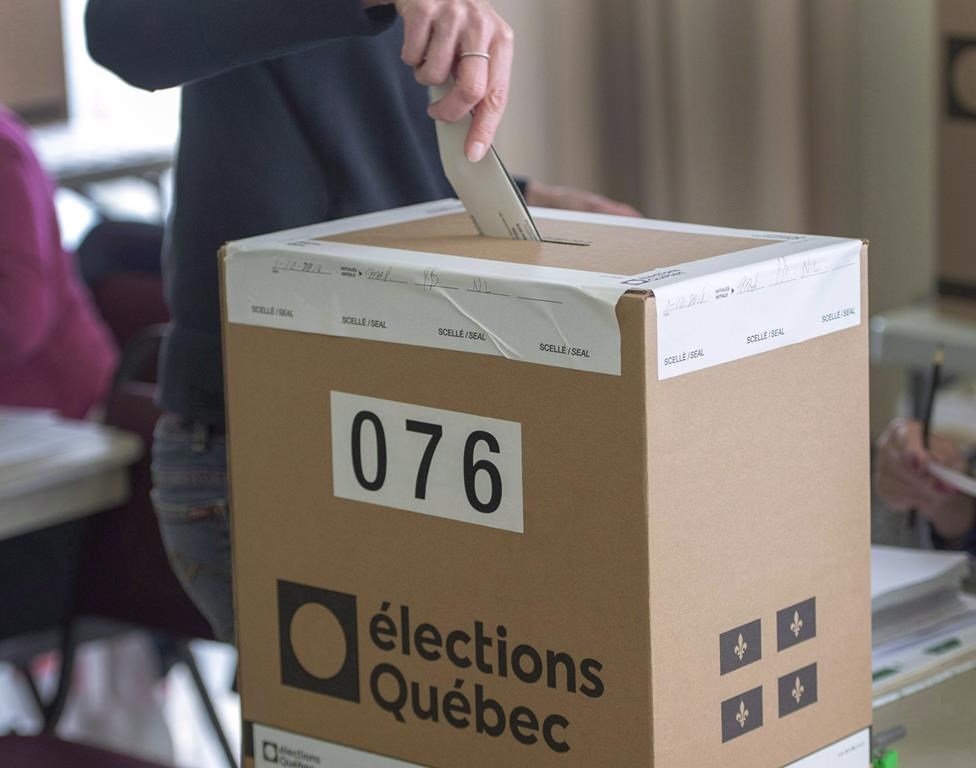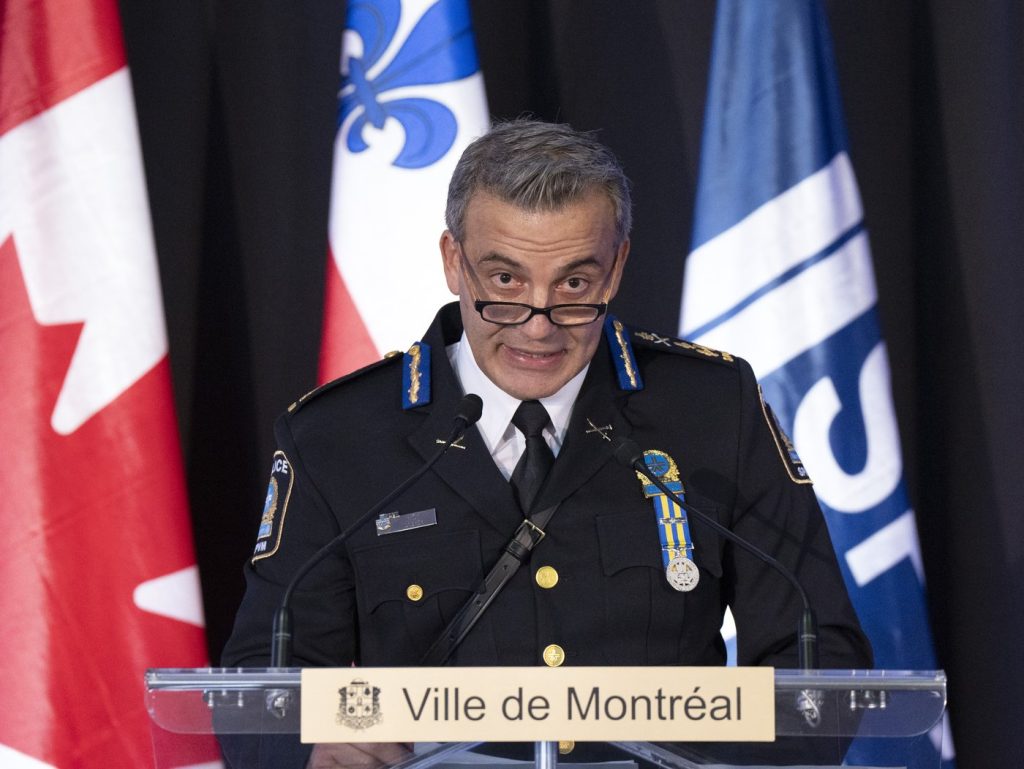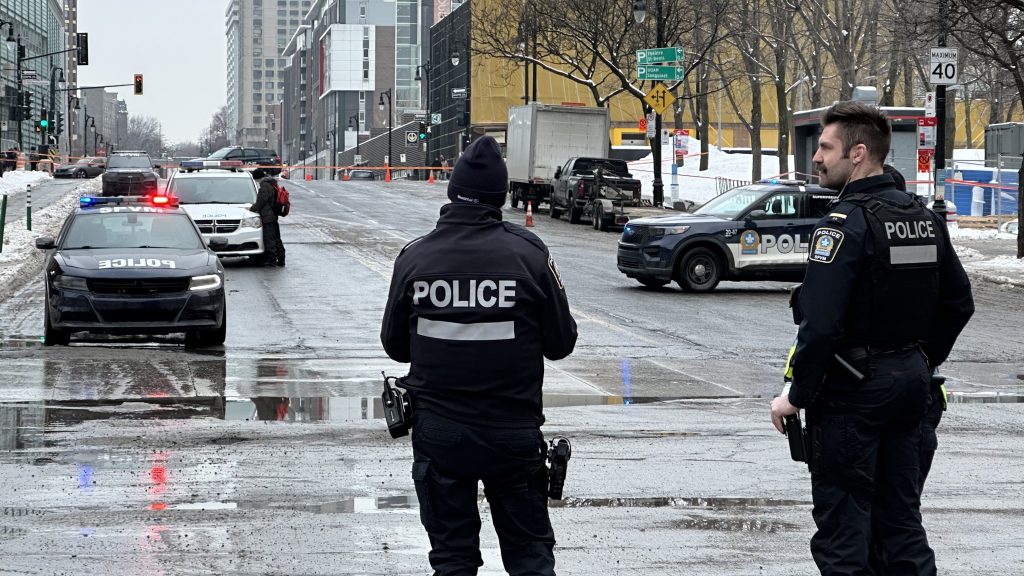Election that looks like ‘foregone conclusion’ could discourage voters: political scientist

Posted September 25, 2022 7:00 am.
Last Updated September 25, 2022 12:16 pm.
An incumbent premier and his party sail through an election campaign as a fragmented opposition vies to capture the attention of voters in the absence of a central rallying issue or tide-turning missteps.
The scenario playing out in Quebec in the lead-up to next month’s provincial election may seem like déjà vu for residents of Ontario, where the Progressive Conservatives won a second majority in June.
Quebec election: What you need to know to vote on Oct. 3
Doug Ford’s victory came as voter turnout in that province reached an all-time low — about 43 per cent, according to preliminary results — and some observers have blamed the drop in participation to the lack of a competitive race or galvanizing issue.
In Quebec, where the incumbent Coalition Avenir Québec has maintained a commanding lead in the polls throughout the campaign, some political parties have raised concerns the province could be headed toward a low voter turnout on Oct. 3.
Earlier this week, Quebec Liberal Party Leader Dominique Anglade pointed to Ontario in calling for voters to mobilize against the CAQ and its leader, François Legault.
“Go out and vote,” Anglade told reporters. “We saw what happened in Ontario.”
Meanwhile, the organization that oversees Quebec’s election has broadened its get-out-the-vote message to the social media platform TikTok in an effort to reverse a downward trend in voter turnout, particularly among younger people. In the 2018 provincial election, 66.45 per cent of voters cast a ballot, a drop of nearly five percentage points from 2014. The turnout for those 35 and under was 53.41 per cent, 16 percentage points lower than for voters older than 35.
Like many other incumbents, Ford and Legault have emerged from the COVID-19 pandemic with solid public support, and there doesn’t seem to be a broad appetite for change, according to political experts. Both leaders also saw formerly strong rivals — the provincial Liberal parties — perform poorly, and opposition parties fail to set the agenda or a viable ballot issue, they said.
MORE ON ELECTION:
- Advance polls open ahead of next week’s provincial election
- New voters sorting their priorities ahead of election
- Should Quebec’s election matter to those outside the province?
- Quebec election: Immigration, climate change major topics early on in leaders debate
An election that “looks like a foregone conclusion” may discourage some from voting because they feel it won’t make a difference, said Peter Graefe, a political science professor at McMaster University.
That might be the case this time for Quebecers who usually support the Liberals since the party won’t likely form government, he said. Since the last election, the Quebec Liberals have struggled to connect with francophones and have alienated part of their anglophone base in Montreal by being seen as weak on language issues.
Other voters, however, may be more motivated, particularly those who back the Conservative Party of Quebec and its opposition to the CAQ’s pandemic measures, Graefe said.
Even if the province doesn’t seem poised for a change of leadership, the race for second place may be a draw for some voters, especially as polls suggest the Liberals could lose their status as official Opposition, said Geneviève Tellier, a political science professor at the University of Ottawa.
A Leger poll released earlier this week suggests support for the CAQ was at 38 per cent, more than double that of its closest runners-up. Three parties — the Liberals, Québec solidaire and the Conservatives — were at 16 per cent, while the Parti Québécois was at 13 per cent support.
“It’s still uncertain and so it’s a three-way race with the Conservatives, the Liberals and (Québec solidaire) in popular support,” which could lead to some interesting battles in certain ridings, Tellier said.
“There could be some surprises” in ridings such as Sherbrooke, in the Eastern Townships, where popular Québec solidaire incumbent Christine Labrie is facing a challenge from a high-profile CAQ candidate: former Longueuil, Que., mayor Caroline St-Hilaire.
The fact that five major parties are competing for the first time is also “a big novelty” that may stir public interest, Tellier said.
And without the traditional question of sovereignty and federalism on the ballot, there’s an opportunity for people to vote based on other issues they care about, she added. “And so people will have interest in different topics and that may dictate their choice in a new way.”
Graefe, however, said having sovereignty off the ballot could instead lessen the incentive to vote if people feel the stakes aren’t as high. “In this instance that kind of existential question has been taken off the table, and so it becomes more like an election in any other province,” he said.
Just over a week before the election, Montreal resident Patricia Machabee still wasn’t sure who to vote for — or even if she would vote at all.
Though she believes voting is a civic duty, there isn’t much motivation when the CAQ appears poised to win, she said in a recent interview. “My vote isn’t even really going to count.”
What’s more, none of the other options are appealing this time, she said, adding that her husband is also on the fence about casting a ballot, for similar reasons.
“I’ve been voting Liberal for most of my life, since I’ve been allowed to vote … but nobody’s got me excited,” she said. “I’m going to have to try to figure out what I’m going to do.”








